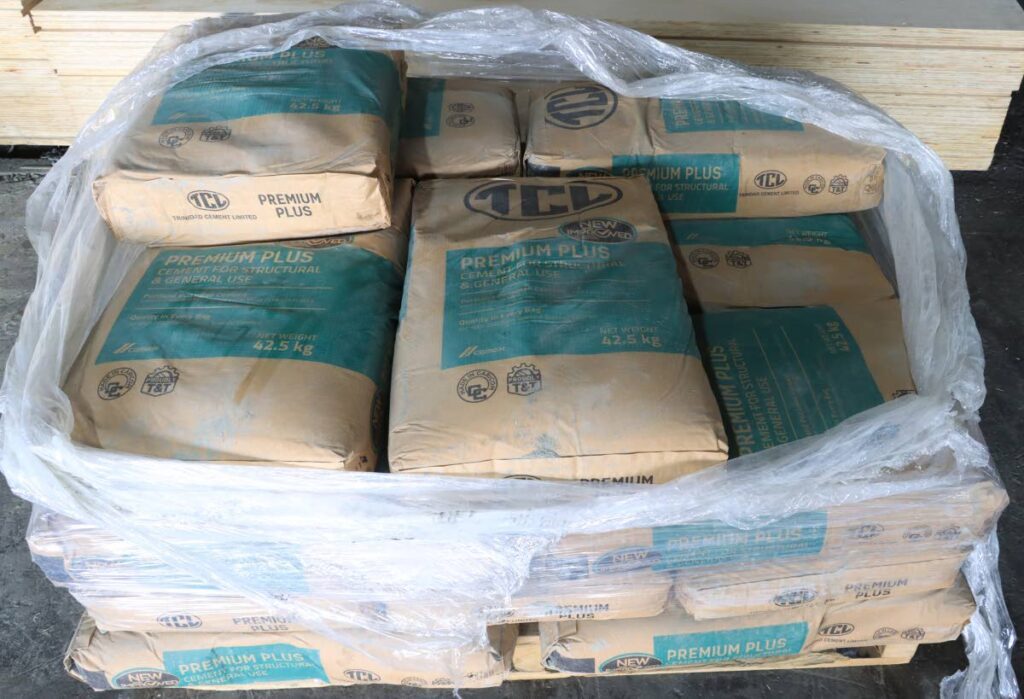The adverse effects of cement price hike

THE EDITOR: The recent surge in cement prices, announced by Trinidad Cement Ltd (TCL), sent shockwaves through the construction sector and raised concerns about its broader implications for the economy.
This latest price change equates to approximately $14 increase per bag since 2021. It is no secret the construction sector is of critical importance to the functioning of the economy. This latest move will undoubtedly add to the strain on consumers who are in the midst of construction.
Add to that the increases in electricity and property tax and you have now significantly reduced discretionary spending.
Compounding the issue is the fact that TCL operates as a monopoly, with competition stifled by import quotas that effectively pushed out other distributors. The recent removal of quotas by the Trade Ministry may be a case of too little too late.
Do you expect businesses to invest in the importation of cement with such inconstancy in policy? Today you remove the quotas and next month you impose some other type of restriction or other barrier to imports. Is that any way to manage the economy, by “vaps?”
Cement is not just another commodity; it is a linchpin of the construction sector and a barometer of economic health.
The fluctuation in cement prices reverberates across various sectors, influencing inflation rates, construction activities, and overall economic performance. Given that the construction sector is a major employer and a driver of non-energy growth, any disruption in its operations can have far-reaching consequences.
Central Bank statistics from 2014 to 2023 reveal a stark correlation between cement sales and economic vitality. While sales experienced a decline in recent years due to covid and the general slowdown in the economy, there was an uptick in 2023 which coincided with positive economic indicators.
The recent price hike, however, threatens to reverse this move, exacerbating the challenges faced by consumers and businesses alike. This move will have the effect of reducing consumer confidence and increasing inflationary pressure.
One must take this in the context that the recently concluded wage negotiations where the public service was given a four per cent increase in salary, really amounts to zero. In fact, it is less than zero.
What makes the current situation even more concerning is the confluence of other impending cost escalations. From the reintroduction of property taxes to potential hikes in electricity and water rates.
Remember to consider the whole picture, increase in the price of gas and diesel, increase in utility rates, increases in the price of internet and cable, increase in food prices, increase in medicine prices etc. Is this what you voted for? Eight years in government and you have managed to stifle and starve the average man on the street.
In this context, another price increase for cement represents a significant burden for consumers and businesses. It not only undermines the affordability of construction projects but also threatens to dampen investor confidence and stall economic growth.
Government policymakers must tread carefully, weighing the short-term implications against the long-term stability and prosperity of Trinidad and Tobago.
The minister of finance appears to be missing the bigger picture. You cannot foster a strong market economy by stifling competition. You cannot tax your way to economic prosperity. Such prosperity must balance the quality of life with affordable goods and services and the right level of taxation.
There has been no increase or improvement in the service output from the government but the cost keeps ballooning. Crime is out of control and the cost of living is increasing to astronomic heights yet the population is being treated with scant respect.
To mitigate the adverse effects of the cement price hike, proactive measures are needed.
This may involve exploring alternative sources of supply, fostering competition in the cement market, and implementing targeted interventions to support the construction sector.
Additionally, efforts to enhance efficiency, streamline regulatory processes, and promote sustainable development practices could help cushion the impact of price fluctuations and bolster economic resilience.
The recent increase in cement prices poses a significant challenge to TT's construction sector and broader economy. As policymakers navigate this crisis, they must prioritise strategies that foster growth, protect consumers, and safeguard the country's long-term prosperity.
By taking decisive action and fostering collaboration between stakeholders, TT can overcome this obstacle and emerge stronger and more resilient in the face of adversity.
DINESH RAMBALLY
Chaguanas East MP


Comments
"The adverse effects of cement price hike"